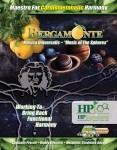Onion compounds may cut prostate cancer risk
cancer, while meat and dairy products could be risk factors, finds
a recent 32 country study.
Environmental factors such as diet and smoking are generally thought to account for 60-70 per cent of cancer incidence and mortality. Since smoking is not a risk factor for prostate cancer the role of diet is likely to be quite high, writes independent US researcher William Grant, who carried out the study.
Prostate cancer mortality (PrCM) rates in northern Europe are approximately five times higher than in Hong Kong, Iran, Japan and Turkey.
Taking his lead from this notion, Grant set out to identify and determine the relative importance of dietary and environmental risk and risk reduction factors for prostate cancer mortality.
He obtained prostate cancer mortality rates for 32 predominantly Caucasian countries for the late 1990s from the World Health Organisation and used dietary supply data from the Food and Agriculture Organisation and solar radiation data from European ground stations.
Factors included in the analyses were alcohol, beer, wine, cereals, eggs, animal product energy, vegetable product energy, total energy, animal fat, vegetable fat, fish fat, fruit, legumes (beans), meat, nonfat portion of milk, onions, animal protein, vegetable protein, sweeteners (added sugar), tomatoes, UV-B radiation, and vegetables.
In addition, the study considered some combinations of individual dietary factors, such as 'protective vegetable products' - all vegetable products less alcohol, fats and oils, and sweeteners.
Grant then conducted linear and multiple linear regression analyses for all 32 countries as well as the 20 European countries.
He found that the strongest risk factors for prostate cancer mortality were animal products, such as meat and dairy products; and the strongest risk reduction factors were onions and cereals/grains, beans, fruits, and vegetables. In other words, fat and protein are risk factors, while complex carbohydrates and antioxidants are risk reduction factors. Solar radiation exposure, through production of vitamin D, also reduced risk.
The overall findings, suggests Grant, point to insulin-like growth factor-I (IGF-I) as being an important risk factor for prostate cancer. The study also found that alcohol is a minor risk factor.
For the researcher, the potential power of the onion is an avenue that scientists must investigate further. 'The strength of onions in this study is very interesting given that allium family vegetables have received little attention as a risk reduction factor for prostate cancer,' said Dr. Grant. If the result is not due to confounding with other factors, it would suggest that one or more compounds found in allium family vegetables can bevery effective in reducing the risk of prostate cancer, he added.
Also worth noting, Grant added: 'What is particularly interesting in this regard is that while lycopene and/or tomatoes have been linked to prostate cancer in 108 papers according to PubMed (July 20, 2003), there are only 12 reports of garlic or allium family vegetables in relation to prostate cancer, yet they may be much more effective in reducing the risk of prostate cancer.'
'A multicountry ecologic study of risk and risk reduction factors for prostate cancer mortality,' by William Grant is published in European Urology, doi:10.1016/j.eururo.2003.08.018.






